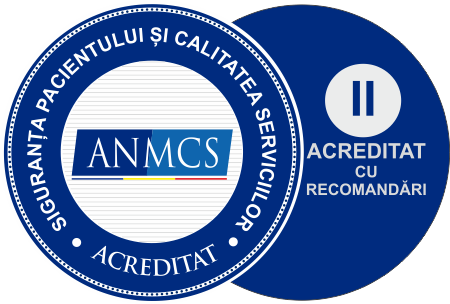What Is Internal Medicine?
Internal Medicine is the medical specialty dealing with the prevention, diagnosis and treatment of internal organ conditions in adults. Internal medicine physicians, “internists”, have the training and expertise to solve complex diagnosis problems and monitor severe chronic diseases and polypathology conditions. The internist evaluates the patients, being responsible for the diagnosis and therapy of a large number of diseases across the whole spectrum of medicine, patients suffering from systemic diseases (systemic vasculitis, autoimmune diseases, paraneoplastic syndromes) and performs periodical controls to assess the patients’ health condition.
Internal medicine is one of the widest and most complex branches of medicine. The internal medicine physician diagnoses comorbidities, being able to specifically indicate the possible specialty visits required. It is a specialty that allows for the general patient evaluation, which offers higher diagnosis accuracy. The therapeutic conduct is established so as to avoid drug interactions or adverse effects.
What Does Internal Medicine Treat?
The main diseases treated and diagnosed by internal medicine are:
- Heart: hypertension, ischemic cardiomyopathy, heart failure;
- Lungs: chronic bronchitis, bronchial asthma, BPOC, pneumonia, acute tracheobronchitis, sarcoidosis, cancer detection;;
- Stomach: gastritis, ulcer, reflux disease, cancer detection;
- Liver: chronic hepatitis, cirrhosis, steatosis (fatty liver), dyskinesia and gallstones, cancer detection;
- Colon: irritable colon, cancer diagnosis;
- Kidney: renal lithiasis (sand and stones), urinary infection, pyelonephritis, chronic renal insufficiency (incipient stage);
- Blood: anaemia, detection of more severe diseases (lymphoma, leukemia);
- Skeletal system and joints: degenerative and inflammatory rheumatisms, rheumatoid polyarthritis, osteoporosis;
- Metabolism: dyslipidemia (high LDL cholesterol levels), gout, diabetes and thyroid disorders;
- Systemic diseases: lupus, scleroderma, vasculitis (Wegener’s disease, etc.)
What Is Vascular Ultrasound/Peripheral Doppler Ultrasound?
It is an investigation required in order to diagnose and monitor vascular disorders with the help of ultrasound. This method allows for the ultrasound viewing of the vessels at the level of the lower, upper limbs, carotid and vertebral arteries ensuring the irrigation of the head, aorta and its main branches.
LaurusMedical Clinic in Cluj Napoca offers the following investigations:
- Venous Doppler Sonography to diagnose or exclude deep venous thromboses (lower limbs, pelvic, upper limbs), post-thrombotic syndrome, lower limb varicose vein disease, superficial venous thrombosis;
- Arterial Doppler Sonography for the diagnosis and monitoring of the lower limb peripheral artery disease (chronic arthropathies + ankle-brachial index), vasculitis (Horton’s disease, Takayasu arthritis, etc.);
- Doppler Ultrasound of the carotid and vertebrae and for the therapeutic and prophylactic management of strokes (stenosis, carotid artery occlusions) and of vestibular syndromes (vertebral insufficiency, vertebral artery stenosis);
Internal Medicine services offered by LaurusMedical Clinic in Bucharest:
- Initial visit
- Follow-up visit
- EKG interpretation
- TA Holter fitting and interpretation
- EKG Holter fitting and interpretation
- Venous and arterial Doppler ultrasound
- Heart ultrasound
- Thyroid ultrasound
- Abdominal/general ultrasound
- Carotid artery ultrasound – Screening










